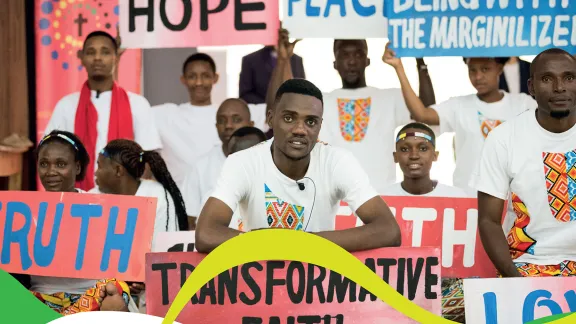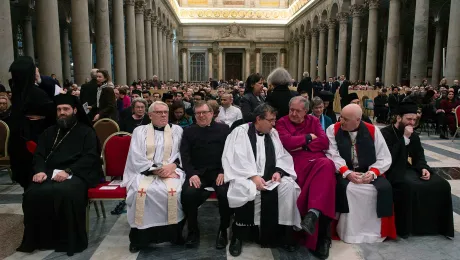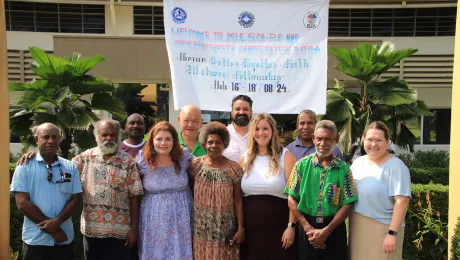
Roadmap for Congregations, Communities and Churches for an Economy of Life and Ecological Justice Photo: WCC
Equipping churches to create just and sustainable communities
(LWI) - Earlier this week the World Council of Churches (WCC) launched a resource kit for congregations to engage with economic and ecological justice. Titled Roadmap for Congregations, Communities and Churches for an Economy of Life and Ecological Justice, it is an invitation to join a pilgrimage for an Economy of Life and climate justice to commit to make changes in the way people live, share successful ideas and encourage one another.
The publication is the fruit of the long work led by Rev. Norman Tendis, a pastor in the Evangelical Church of the Augsburg Confession in Austria and WCC consultant for Economy of Life. He was one of the victims of the Ethiopian Airlines crash on 10 March.
The Roadmap was presented at the United Nations Environment Assembly earlier this week and formally launched on 12 March at the Ecumenical Center in Geneva. It offers a five-step program to change the way individuals and churches deal with the economy and ecological surroundings in the following areas:
- Living in accordance with the covenant with God and creation
- Renewable Energy & Climate Protection
- Just and Sustainable Consumption
- Economies of Life
- Networking
The Lutheran World Federation (LWF) collaborates with the WCC on issues related to climate justice, and the Austrian church is one of its member churches. Rev. Dr Chad Rimmer, study secretary for Lutheran Theology and Practice and Ms Pranita Biswasi, secretary for Youth, both welcomed the Roadmap as a valuable resource for congregations and churches.
“One of the core commitments of the LWF is to strengthen the efforts of member churches and youth to live out our baptismal call to educate, advocate, act for justice on behalf of the earth and the climate vulnerable. The “Roadmap for Congregations, Communities and Churches for an Economy of Life and Ecological Justice” demonstrates a shared commitment to equip people of faith to promote the dignity and peace of creation,” they noted.
One of the core commitments of the LWF is to strengthen the efforts of member churches and youth to live out our baptismal call to educate, advocate, act for justice on behalf of the earth and the climate vulnerable.


